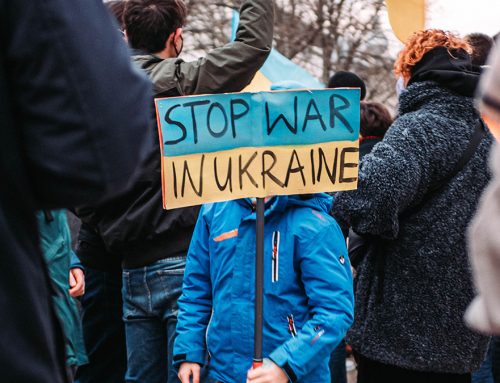Growing up in my family, my parents raised each of my brother and sisters and I with an openness to healthy debate and discussion. More often than not, this involved Mass together on a Sunday, and when we would come home and enjoy a fry together, we would discuss and at times debate what the priest had said in their sermon that morning.
There were occasions in which my mum or dad had to intervene as voices became more raised, or heels were dug in in trying to get our point across. They did not restrain us from robust and even heated discussion and debate, but they did draw the line when it seemed that we were moving away from being respectful. They did not insist that as the parent they were always right but listened to what we as their children were saying to them. It is only looking back now that I truly appreciate the valuable lessons they were instilling in us. For the record, we still enjoy healthy discussion and debate and my parents still need to intervene on occasion.
Having participated in the Centre for Democracy and Peace Building’s Fellowship Programme last year, one of the most striking lessons which I have learned is that, even in politics, not everything needs to be a debate. Sometimes it is enough to just discuss something with someone. None of us, after all, have all the answers.
Having written previously on the need for a ‘Shared Healing’ that invokes the CDPB ‘Spirit of Possibility’ I should suggest that as part of a next step, the next few months are an ideal time for us to conduct a little experiment. Are you interested? If so, read on.
As an activist for a political party, many of us are now in the habit of lacing up our walking boots, throwing on the waterproof jacket, and hitting the roads to knock doors and engage with the public. Why? Because on Thursday 5th May we will have our next election for the Northern Ireland Assembly. One way or another, this election will be a seminal moment and will set the trajectory for our future.
So, what’s the experiment? My suggestion and question is this; what would an Assembly election campaign look like with a Spirit of Possibility at its heart?
At this stage, in the interests of full disclosure, I am an activist but am not a candidate in this election. I have never sought election and I do not write this in an attempt to sway somebody reading this towards one political party or another. With that said, there are a number of key components to the Spirit of Possibility that we may wish to consider and questions we may wish to ask as we approach the next election whether we be voter or candidate.
My suggestion: start with Why?
The primary question; why do you seek election? This is without a doubt the single question we must begin with and which every voter needs to be asking from their candidate. If you ask them “What will you do if elected?” then you can be sure there’ll be an ‘oven-ready’ answer ready to go. Ask “What are your priorities for the election?” and you may be amazed at how quickly your priorities will become theirs. You may get answers about the Northern Ireland Protocol, uniting Ireland, putting integrity back in our institutions, or ensuring there is a rights-based agenda. However, all of these are very narrow and limited in scope and are What somebody or some party will do. If there is an answer that says “We are going to call for a border poll in the next X years” or “I’ll be working on the ground for you”, this is all well and good but is actually just How a party will achieve the What they had previously described. This does not sufficiently identify Why someone seeks election.
Asking somebody “Why do you seek election?” is something altogether different and could be potentially more difficult for a candidate. However, it will give us a greater glimpse into who they really are, and if the Spirit of Possibility is something they are concerned with. Their Why may be something they have not considered before. Never before has this been needed as much. The last number of years have seen a marked increase in populism (even here at home) and the rise of demagogues (yes, again even here at home).
Now, it is not for me to an outline an appropriate answer for “Why” however, if someone can answer this question for you and this does not lead to further questions or dialogue then sorry but they have not answered the question sufficiently. Asking Why leads to further questions. If both parties; the candidate and the voter, are truly being honest with each other and are both genuinely and deeply listening to each other, they will find themselves in a conversation in which hopes and dreams, aspirations and inspirations will find their way to the surface. They may even discuss their fears and things that give them concern; but this will not be in an attempt to frighten someone to the polling station, but rather to simply share these. They may be amazed at how much they have in common.
It’s a bit like being out on a first date with someone, something I have ample knowledge of, in which there’s a strange dynamic in which you attempt to present the very best version of yourself, as though you are the answer to the question the other has been trying to solve.
It’s something none of us can live up to. However, the situation I have outlined above in which we discuss our hopes and dreams, our fears and worries, which does not place an expectation on the candidate, or gives false assurance to the voter (but rather is simply an act of sharing and building of trust) is something we can achieve.
While you may not be able to fix their problems or deliver on their hopes, you will at least know that you can give Voice to these and you will have gained their trust. This is something you cannot fake.
The process outlined above is one which will very quickly reveal who is the real deal, and who is just another snake oil salesman.
It’s funny, one of the lines which is thrown about so often is that Politics is the art of the possible. Which is true, but quite often this is used when we want to convince someone that there is an answer to every problem, regardless of how elusive it is. It also generally coincides when we are quite certain that we have that answer. However, the statement above is not complete. The full statement is actually: Politics is the art of the possible, the attainable — the art of the next best.
This is something quite different and reveals for us that all politics is an art of compromise. There is no other way around it. With politics we do not always get what we want. There is no perfect political fit. If you have a perfect political fit then I am sorry to tell you that you have not found a political party, but a cult. However, if we are willing to engage with a Spirit of Possibility then we find that the art of the possible that we are trying to achieve is one that can be shared by all. The compromises we make will be ones we can live with. The future we map out will be a shared one, as shall be its benefits. I have spoken about Shared Healing. But what comes after that? So far, I have only found one artist try to answer that, 26-year-old Nigerian artist Temilade Openiyi who has said, that “After healing comes life, comes fun, comes vibes, comes dancing.”
Now that is an election, I would want to see; an Election of Possibility and Life.
Let’s see what the breakfast table makes of this…
Dominic O’Reilly



